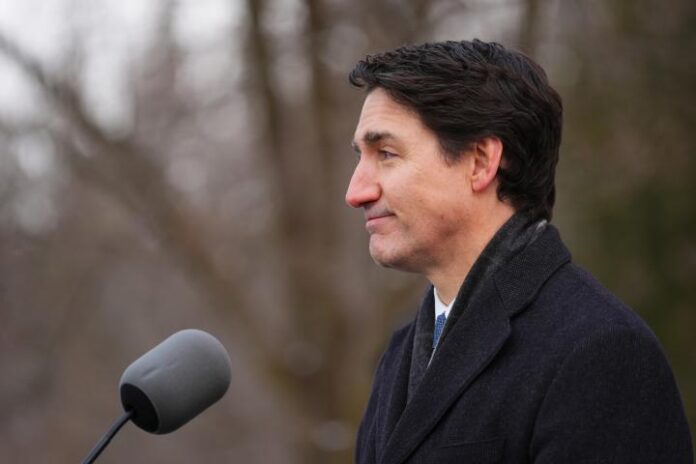The Paradoxical Legacy of Justin Trudeau: Political conflicts and ethical quandaries, by Ahmad Shuaibu Isa
The political journey of Canadian Prime Minister Justin Trudeau is a complex narrative, intricately woven with domestic challenges and significant international scrutiny, particularly regarding Canada’s foreign policy during his tenure. A thorough examination of his resignation, the government’s domestic strategies, and its international stance reveals a sharply divided legacy, necessitating an evaluation of Trudeau’s time in office through both the pragmatic lens of political effectiveness and the ethical framework of global accountability.
Domestic Politics and Trudeau’s Resignation: Trudeau’s resignation, triggered by escalating political challenges such as a minority government and legislative stagnation, exemplifies a decline in governmental efficacy. The prorogation of Parliament until March 2025 marks the onset of an era of inertia, further intensifying public disillusionment over stalled initiatives on pressing issues such as healthcare, climate change, and economic rejuvenation. His choice to remain as a caretaker prime minister, despite an inability to implement national reforms, highlights a broader political malaise, signifying a leader ensnared in an unbreakable cycle of inertia. As a leadership transition approaches, the Liberal Party contends with ideological fragmentation, grappling with internal disputes over policy direction and an erosion of public trust.
READ ALSO: President Tinubu discusses collaboration options with Canadian Prime Minister Trudeau
While Trudeau’s domestic legacy boasts significant advances in social justice and climate action, his departure signifies the dusk of a political chapter. The incoming leader within the Liberal Party faces the formidable challenge of reconciling past ideals with the urgent demands of pragmatic governance, navigating the delicate balance between upholding progressive aspirations and recalibrating policies towards a more centrist stance.
International Scrutiny and the Ethical Ambiguity of Foreign Policy:
In stark contrast to his domestic troubles, Trudeau’s foreign policy—especially concerning the Israel-Gaza conflict—has provoked considerable international condemnation. Critics assert that Canada’s tacit endorsement of Israel’s military actions, particularly its unwavering approval of military exports despite the global outcry, undermines Canada’s ethical standing on the world stage. The government’s failure to restrict the flow of arms, particularly those supplied through the United States, raises serious questions about Trudeau’s professed commitment to human rights and international law. This failure to act with moral clarity in the face of a global crisis has led to accusations of complicity, tarnishing Canada’s reputation as a champion of peace and justice.
Although his administration suspended new arms permits, it continued to honour existing contracts, revealing a troubling paradox between Trudeau’s public rhetoric of peace and justice and the political realities of governance. This inability to adopt an unequivocal stance on the Israeli-Palestinian conflict, along with the obfuscation surrounding military exports, underscores the ethical inconsistencies of his leadership. Trudeau’s foreign policy appears motivated less by moral conviction and more by political expediency, perpetuating a narrative of ambiguity and inaction.
A Contradictory Legacy of Idealism and Pragmatism:
Trudeau’s political legacy embodies a fundamental contradiction. Domestically, he is celebrated as a champion of progressive causes; however, his failure to deliver meaningful reforms amid political stalemate casts doubt on his effectiveness as a leader. On the international front, Trudeau has positioned himself as an advocate for human rights and global justice; nevertheless, his foreign policy decisions—particularly concerning the Israeli military—severely undermine that image. His tenure reflects a leader caught between the lofty ideals of multilateralism and the pragmatic, at times morally ambiguous, strategies of political survival.
As Trudeau departs from the political arena, Canada finds itself at a crucial crossroads. The transition to new leadership offers an opportunity for the Liberal Party to reassess its policies and redefine its ideological vision. Yet, this shift carries the risk of further division and political uncertainty. The incoming leadership must carefully balance the restoration of public confidence in domestic priorities with the need to address the tangled, ethically complex legacy Trudeau bequeaths. Ultimately, Trudeau’s legacy will be characterised by these glaring contradictions—an era of progressive ideals overshadowed by geopolitical entanglements and the inability to confront human rights crises decisively.
The Global Ramifications of Supporting Oppressive and Genocidal Regimes:
Supporting unjust, tyrannical regimes, particularly those implicated in genocidal actions erodes the moral authority of the supporting state and undermines global human rights frameworks. Such complicity not only legitimises systemic atrocities but also fosters a climate of impunity, emboldening oppressive regimes to persist in their brutal actions without fear of international repercussions. This support breeds instability, fuelling conflicts that destabilise entire regions and inflict lasting harm on innocent populations.
Economically, it isolates the supporting state from vital international partnerships, undermining its credibility in global diplomacy and trade. The erosion of public trust within the domestic sphere is inevitable, as citizens begin to view their government as complicit in crimes against humanity. Additionally, diplomatic relations with other nations deteriorate, weakening multilateral efforts and global cooperation. The suffering of marginalised groups intensifies, overlooked in favour of political and economic alliances that exacerbate cycles of violence and inequality. In the long run, such support undermines the ethical integrity of the supporting nation, diminishing its position as a credible advocate for peace, justice, and human rights on the global stage.
By Ahmad Shuaibu Isa.
Email: ahmadeesir214@gmail.com
Follow the Neptune Prime channel on WhatsApp: https://whatsapp.com/channel/0029Va74ZvU2v1IqKByXoX3d
Do you have breaking news, interview request, opinion, suggestion, or want your event covered? Email us at neptuneprime2233@gmail.com


